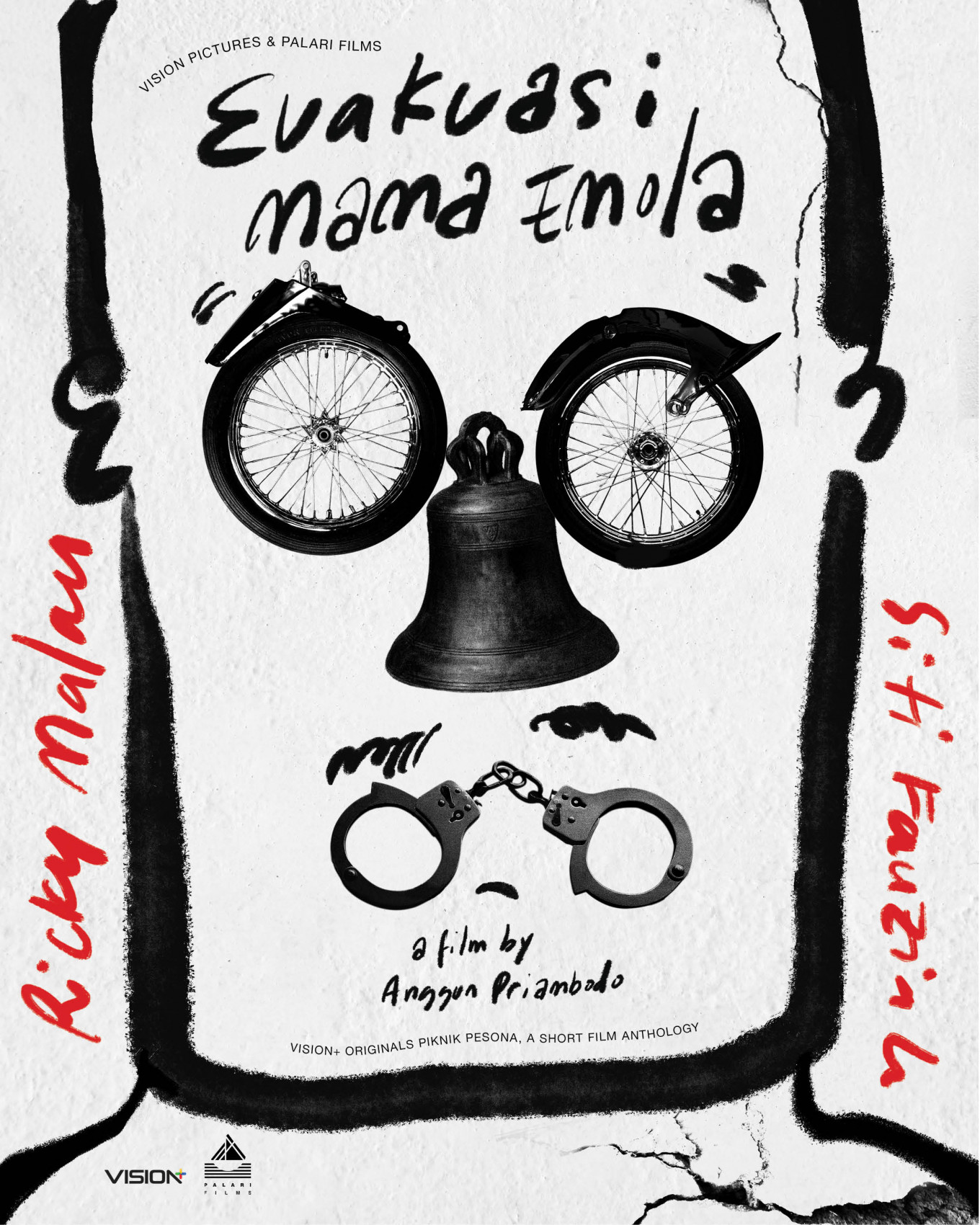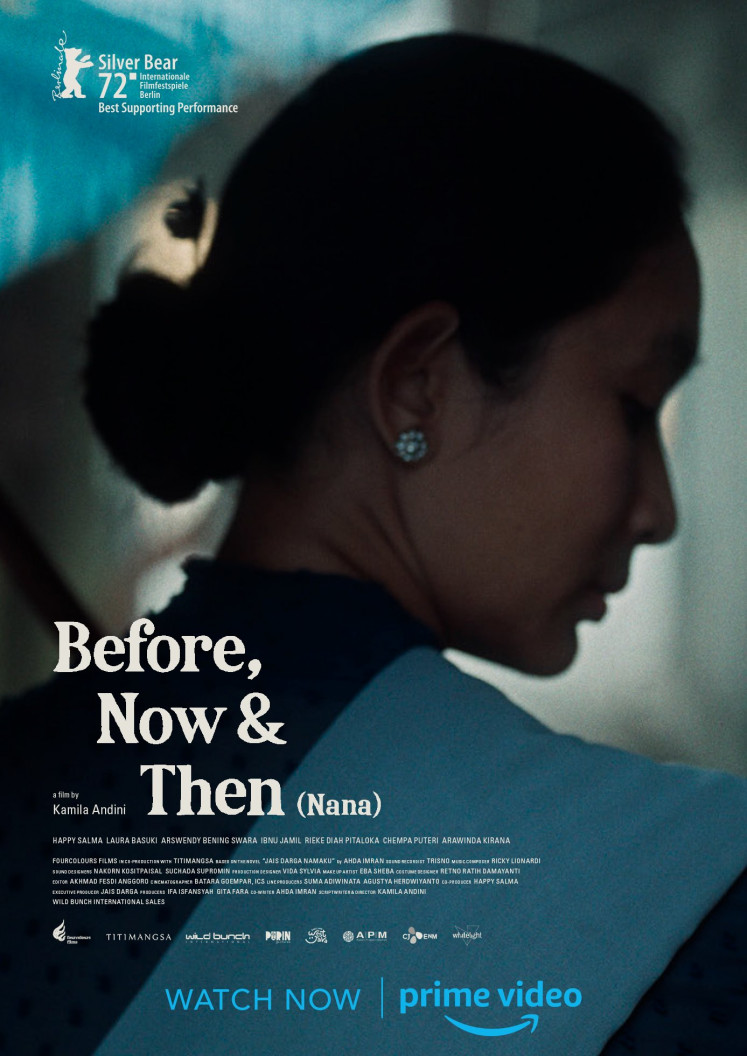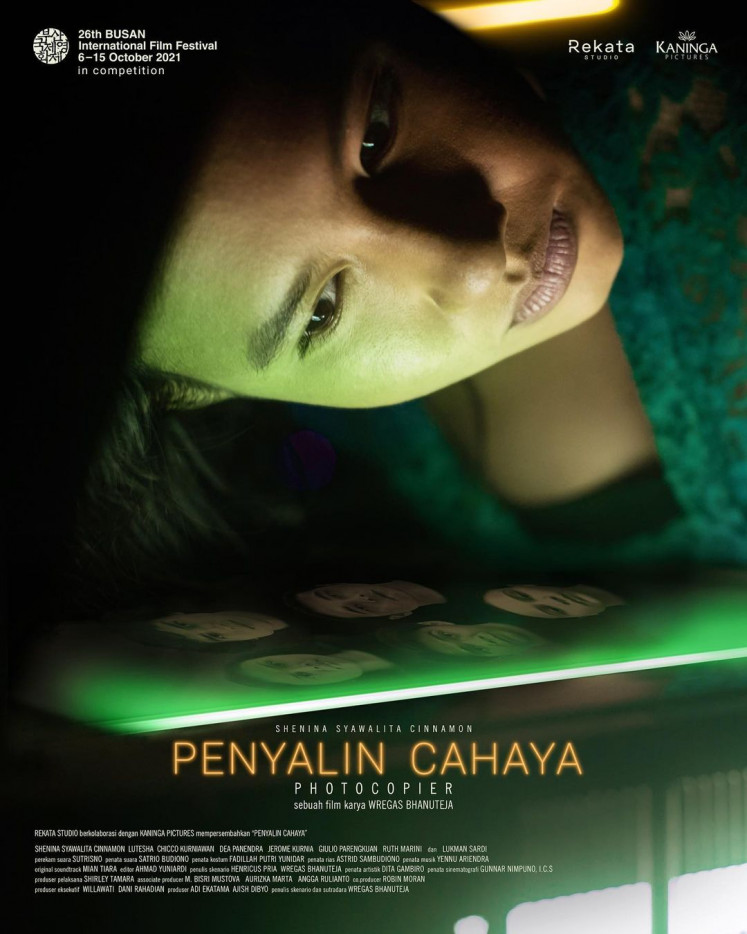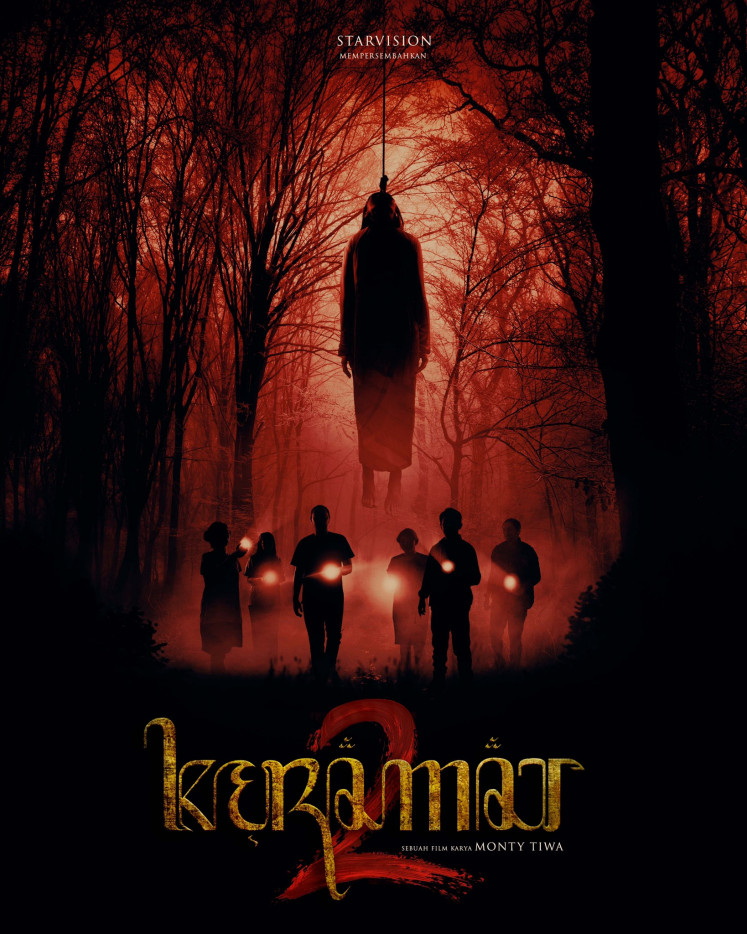Popular Reads
Top Results
Can't find what you're looking for?
View all search resultsPopular Reads
Top Results
Can't find what you're looking for?
View all search resultsYearender: 2022’s best Indonesian films
Change text size
Gift Premium Articles
to Anyone
F
rom breaking box office records to breaking their own genres’ boxes, The Jakarta Post picks the top-10 Indonesian films this year.
Something is in the water this year that makes Indonesian films, collectively, seem to be bigger, stronger and better. All of the releases seem to be fusions of each other: The dramas are getting calmer, the actions are getting wilder, the thrillers are getting more thoughtful and the horrors are getting more… fun?
It is not just the post-pandemic elation; the filmmakers and the audiences are all enjoying making and watching films this year. That mutual love resulted in jam-packed theaters with 53 million admissions across 2022, and local movies targeted for festival releases also charmed mainstream audiences.
This is the biggest fusion this year, in which arthouse films and mainstream blockbusters collide. Here, we pick some of the best ones that blur the lines separating the two.
‘Penyalin Cahaya’
Released in festivals (and showered with awards) last year, Penyalin Cahaya (Photocopier) finally hit Netflix earlier this year. Even as 2022 draws to an end, the film’s plot and premise remain a fresh take on Indonesian film history. The drama-thriller about a victim of gender-based violence within the campus community is a commendable debut by rising filmmaker Wregas Bhanuteja, a name festival-goers have known for a while.
Packaged in a whodunnit subgenre that hearkens back more to the Jodie Foster-led 2005 Flightplan than the 2019 murder mystery Knives Out, Penyalin Cahaya opens up new ground for other filmmakers attempting to tackle a similar issue of exploitation and sexual harassment, possibly with better execution, too.
‘Satan’s Slaves 2: Communion’
Sundanese tale: Based on a true story, 'Before, Now & Then (Nana)' presents Raden Nana's silent struggle through 1960's Bandung. (Instagram/Fourcolours Films @fourcoloursfilms) (Instagram/Fourcolours Films @fourcoloursfilms)What happens if you give one of the most-prominent filmmakers in the country a chance to extend a classic film beyond its remake? A horror, at that?
Joko Anwar’s answer is not to make a bigger universe (he is busy dealing with the local superheroes) or bigger stakes (à la The Exorcist III). He confines everyone in a satanic hellhouse, which in Joko’s dictionary refers to an old apartment flat in North Jakarta surrounded by floods.
In this inescapable, The Raid-inspired deadlock, viewers are treated with a horror story so simple that they join the characters to look for any possible exits to no avail frantically. In this big haunted-house style, Satan’s Slaves 2 playfully toys with comedy and even attributes of role-playing games (RPG).
‘Ngeri-Ngeri Sedap’
A warning tale: The poster for filmmaker Gina S. Noer's third directorial feature 'Like & Share' shows the two main characters, Lisa and Sarah, as ASMR content makers on YouTube. (Instagram/Like & Share @filmlikeandshare) (Instagram/Like & Share @filmlikeandshare)Depicted exactly as in its theatrical poster, Ngeri-Ngeri Sedap (Missing Home) feels like a big hug. The wholesome drama about a Batak head of a family whose children have slowly lost touch with their traditional customs grips the audiences’ hearts and squeezes them until tears flow out. As more and more Indonesian films focus on telling their own stories, especially from other regions outside of Java, Ngeri-Ngeri Sedap not only relates to its Batak viewers with its cultural specificity but also to a more general Indonesian audience, due to its intergenerational issues. Heavy and heartful as the story might be, the cast lightens the blow with their entertaining performances.
‘Noktah Merah Perkawinan’
Impressive debut: Rising filmmaker Wregas Bhanuteja tells the story of exploitation and gender-based violence in his award-winning debut film 'Penyalin Cahaya'. (Instagram/Penyalin Cahaya @penyalincahaya) (Instagram/Penyalin Cahaya @penyalincahaya)In contrast to Ngeri-Ngeri Sedap’s poster, the one for Noktah Merah Perkawinan (The Red Point of Marriage) might seem like another soapy romance like many Indonesia has produced over the years. But in reality, the film dramatically defies false expectations. Noktah Merah Perkawinan tells a modern, harrowing tale of budding romance and crumbling marriage. Adapted from the original 1996’s soap opera, it aligns the sweetness of new feelings and the pain of betrayal in a calm manner, despite its showy arguments. It rests among the great romance-family stories like Losmen Bu Broto (Bu Broto’s Inn) and dials up its drama with very little cheesiness.
‘Mencuri Raden Saleh’
Mother's return: Filmmaker Joko Anwar's sequel of 'Satan's Slaves' focuses on a single apartment flat in North Jakarta infested with satan worshippers. (Instagram/Joko Anwar @jokoanwar). (Instagram/Joko Anwar @jokoanwar)Making a heist movie in a country that lacks them is one thing; creating an enjoyable one is another. Mencuri Raden Saleh (Stealing Raden Saleh) is a one-two-punch entertainment made possible by the nice twists and turns the genre is known for and the excellent action it produces from the writing. Clocking in at two-and-a-half hours, the minutes pass as quickly as the car-chase scene. But most importantly, the one aspect that makes this film similar in greatness to other heist films like Ocean Trilogy or Baby Driver is the cast, which consists of rising young actors and actresses that play off each other very well and captivates the audience all the way through.
‘Keramat 2: Caruban Larang’
Tear-inducing: The Indonesian representation for Academy Awards 'Ngeri-Ngeri Sedap' tells the story of a Batak head of family that will do anything to make his children come home. (Instagram/Ngeri-Ngeri Sedap @ngeringerisedapmovie) (Instagram/Ngeri-Ngeri Sedap @ngeringerisedapmovie)Keramat 2 carries the weight of massive expectations from its name alone. The original movie, released in 2009, is an Indonesian classic-horror staple, acclaimed for its deathly scary found-footage format that captures a supernatural occurrence during film production.
Set 13 years later, with modern technology (and a better internet network), can its sequel be scarier than the first? Filmmaker Monty Tiwa pays no mind to that matter. Keramat 2 (Sacred 2) presents a horror movie that is self-aware of its time -- even the characters plough ahead and crack some jokes to numb their dread. What remains pivotal is the heart of its story, which follows the original film’s valuing of the environment, traditional customs and local heritage. Here, captured in a modern tale and breaking the stereotypical horror jump-scares, the sequel succeeds at entertaining viewers even as the cast is being buried alive.
‘The Big 4’
Marriage story: Rife with dramatic arguments, the film adaptation of 'Noktah Merah Perkawinan' gives a harrowing look inside a crumbling marriage. (Instagram/Noktah Merah Perkawinan @noktahmerahperkawinan) (Instagram/Noktah Merah Perkawinan @noktahmerahperkawinan)Exhilarating and fun, The Big 4 has an eccentric lineup of characters that will be remembered for years. It is almost an off-brand release for acclaimed filmmaker Timo Tjahjanto, whose previous works have been the darkest and most-vengeful bloodbaths in Asia. But the night-and-day comparison is useless because, from its early minutes, The Big 4 has blown open the door of new possibilities for local films with an amalgamation of The A Team, martial-art movies and Timo’s comedy-action flicks. Absurdly hilarious in the veins of Shane Black’s greatest films, the comedy and action intertwine so admirably that one cannot seem to exist without the other.
‘Evakuasi Mama Emola’
Pioneer: Presumably the first heist movie Indonesia has ever produced, 'Mencuri Raden Saleh' dares to do the impossible with young actors and big action scenes. (Twitter/Mencuri Raden Saleh @mrs_film) (Twitter/Mencuri Raden Saleh @mrs_film)One of the best Indonesian releases this year comes in the form of a short film. Packaged in the Piknik Pesona omnibus from the collaboration between production-house Palari Films and Vision Pictures, Evakuasi Mama Emola (Mama Emola’s Evacuation) is a 20-minute story of a prisoner looking to evacuate his mom in the wake of a tsunami warning. Still, it is also a story of wrongful conviction, closely knit communities, cooperation, God’s message and much more. Beyond just a setting, the gorgeous Ternate backdrop and its people are the story’s soul with their traditional songs and dances, exerting a life of their own in this stunning black-and-white picture.
‘Before, Now & Then (Nana)’
13 years later: The sequel to 2009's Indonesian horror staple 'Keramat' presents an entertaining journey through the other world. (Instagram/Starvision Plus @starvisionplus) (Instagram/Starvision Plus @starvisionplus)The award-winning Sundanese film from revered director Kamila Andini was critically acclaimed for more reasons than one. Still, above all, when other films have tried to insert dialogues where it does not need them, Before, Now & Then knows better when not to speak. Andini exercises the show-not-tell principle in this faithful story adaptation of Raden Nana in 1960s Bandung from Jais Darga’s biography about her mother. Suppose Hong Kong acclaimed director Wong Kar-wai uses silence for his musings on love and loss. In that case, Andini uses it to show women’s struggle to be silent to survive, bogged down by patriarchal systems and societal expectations. Despite its serene meditation, none of this would be achievable without the cast’s stunning performances and expressions that carry such big longings.
‘Like & Share’
Netflix hit: Revered action filmmaker Timo Tjahjanto returns with a new vigilante-led movie 'The Big 4' which ranks first in Netflix's most-watched ranking worldwide on Dec. 19. (Twitter/Timo Tjahjanto @Timobros) (Twitter/Timo Tjahjanto @Timobros)What makes a great movie? Storytelling, cinematography, performances and other aspects factor into this answer. Still, few Indonesian films have managed to excel at them all, and even fewer Indonesian films have managed to tell the story through their pictures as if two are separate arts.
Like & Share is here to be that cinematic catharsis for the industry. Telling the story of two high-school students at the front gate of their sexual exploration, filmmaker Gina S. Noer captures their journey with a clear vision of online commodification, sexualization, abuse, gender-based violence and above all, the lack of sexual awareness and education within the community—something Gina has been telling the viewers since 2019’s Dua Garis Biru (Two Blue Lines). Watching Like & Share is to feel safe in the hands of someone well-versed in cinematic language and to feel the love between its two main characters, which saves them both at the end of the day.



















